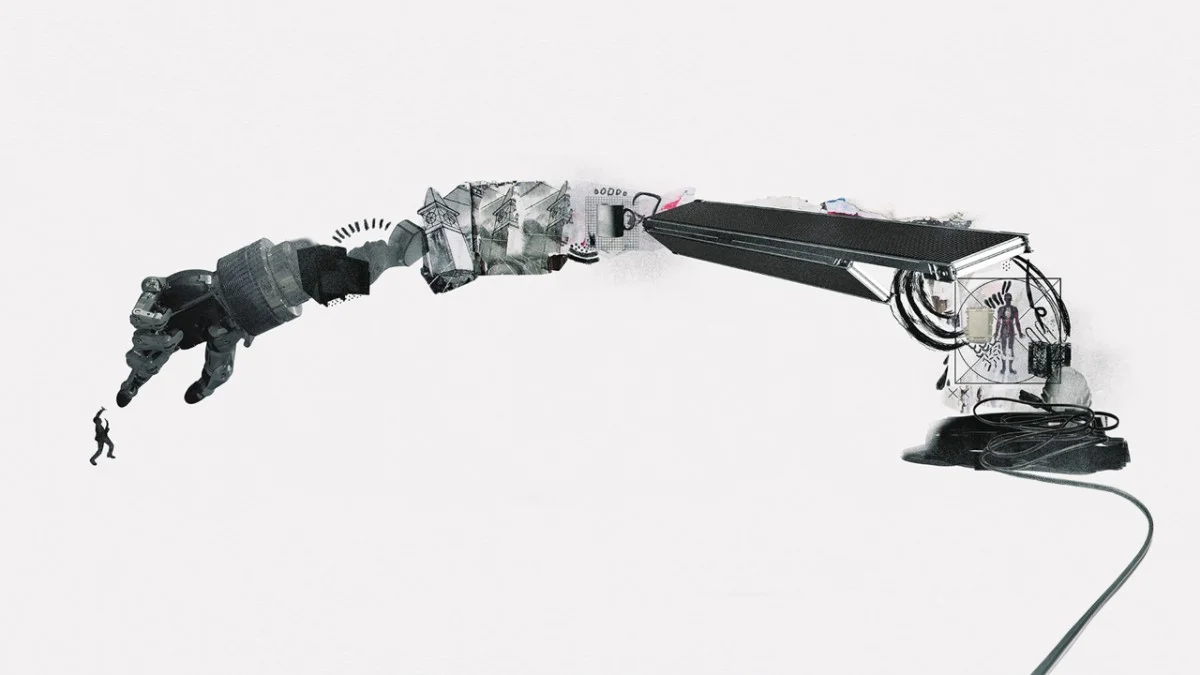The Truth About Killer Robots
HBO Documentary Review: “The Truth about Killer Robots". This documentary is exclusively on HBO and just aired this month. It was extremely interesting and eye opening for the current state we are in today and the scary possibilities of a robotic world ahead.
When a robot kills a human, who takes the blame?
An eerie, eye-opening work of science nonfiction, The Truth About Killer Robots considers several automation cases, from a factory in Germany to a bomb-carrying police droid in Dallas, raising questions of accountability and morality. Exploring the provocative viewpoints of engineers, journalists and philosophers, the film goes beyond sensational deaths to examine more subtle but pervasive ways that robots affect humanity.
Narrated by Kodomoroid, a lifelike Japanese android, The Truth About Killer Robots focuses on the growing use of robotics in manufacturing, the service and life-and-death policing matters. The film visits Germany, China, Japan and the U.S. to gain insights into the ways robots are impacting jobs across cultures.
In a cautionary film, director Maxim Pozdorovkin lays out the many ways that automation could affect us in the long term from labor to sex to psychology.
“This idea of a single, malevolent AI being that can harm us, the Terminator trope … I think it’s created a tremendous blind spot,” he said to the Guardian. “[It gets us] thinking about something that we’re heading towards in the future, something that will one day hurt us. If you look at the effects of automation broadly, globally, right now, it’s much more pervasive. The things happening – de-skilling, the loss of human dignity associated with traditional labor – they will have a devastating effect much sooner than that long-distance threat of unchecked AI.”
That isn’t to say that robots can’t also just reach out and crush us. In his new documentary, The Truth About Killer Robots, Pozdorovkin traces all manner of dangers – economic, psychological, moral and, yes, mortal – posed to our species by automation and robotics. At the center of his film lies the question: “when a robot kills a human, who takes the blame?”
Pozdorovkin had long sought to make a film on automation, but he had a difficult time figuring out a way to approach the subject given its scope, as well as the many misconceptions surrounding it. It wasn’t until he heard about a case in Germany, where a manipulator arm crushed a line worker at a Volkswagen plant to death, that he knew he had his way in.
Using science-fiction author Isaac Asimov’s First Law of Robotics – “A robot may not injure a human being or, through inaction, allow a being to come to harm” – as a jumping-off point, his documentary covers a sampling of deadly incidents involving automated machinery, including a couple driverless car accidents that resulted in fatalities, as well as the first intentionally lethal use of a robot by American law enforcement.
Have we already crossed the point of no return? Is the current political climate throughout the west the result of this degradation of empathy, stemming perhaps from the way we communicate with each other online, where we can automate personal exchanges via a retweet, like, or eye-roll emoji – to say nothing of the way we spread vitriol?
Ultimately, it’s just one of the ways in which the takeover of machines is well under way. Even as we continue to reel from the pace at which it is happening, those in charge of, or with access to, the technology – the corporate owners, the military, the police – will not hesitate to use it. Nor will they concern themselves with “the philosophical consequences and complications of breaking Asimov’s Law”.
If you have access to HBO I strongly recommend that you watch this documentary. After watching you will begin to ask yourself - “have we crossed the point of no return?”


